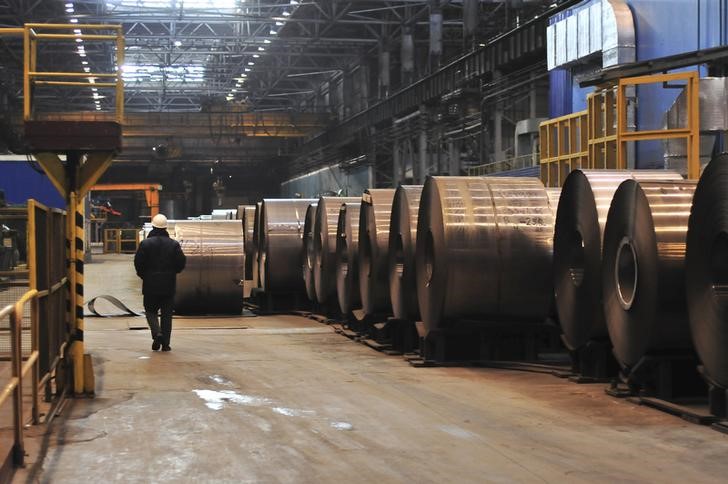* Steel rebar snapped 6-year losing streak in 2016
* As smog returns, factories forced to cut output
* Turnover low after new year holiday (Updates prices)
By Josephine Mason and Muyu Xu
BEIJING, Jan 3 (Reuters) - Chinese steel prices ended the first trading day of the new year slightly higher as a prolonged bout of toxic smog across the north of the country boosted expectations of lower output in the world's top producer even as demand growth slows.
"Prices in the spot market are still strong, as smog in northern China has halted production of steel mills. Meanwhile, the government has been stepping up environmental inspections," said Tang Zuochu, steel analyst at Baocheng Futures.
The most-active rebar contract for May delivery on the Shanghai Futures Exchange SRBcv1 settled up 0.10 percent at 2,914 yuan ($418.96) per tonne.
Still prices were off their earlier intraday high of 2,998 yuan and turnover was low as trading resumed after markets were closed on Monday for the new year holiday.
Heavy smog blanketed northern parts of China at the weekend and was expected to persist until Thursday, forcing hundreds of factories including steel mills to scale down production or close completely. that could be bullish for supplies, curbs to heavy manufacturing are also likely to hurt demand for metal and steel mills forced to curb capacity will buy less iron ore. Concerns about slowing demand growth have weighed on sentiment in recent weeks.
Investors focused on Tuesday on the potential impact of Beijing's supply-side reforms.
Last week, China warned local officials over failures to curb industrial overcapacity after discovering two firms making steel illegally. Huada Steel Co Ltd was found to be making steel using outdated equipment and failing to meet quality standards, while Hebei Anfeng Steel Co Ltd had built new steel smelting projects without proper approvals.
The government-enforced capacity cuts may in the long term help erode global oversupply. China's annual crude steel surplus is estimated at around 300 million tonnes, three times the annual output of the world's second-biggest producer, Japan.
Steel prices snapped their six-year losing streak in 2016, surging more than 60 percent on better-than-expected demand from construction and infrastructure and soaring costs for coking coal due to government-enforced coal mine closures.
Iron ore on the Dalian Commodity Exchange DCIOcv1 settled down 0.7 percent at 550.5 yuan a tonne. (Editing by Richard Pullin and Biju Dwarakanath)
